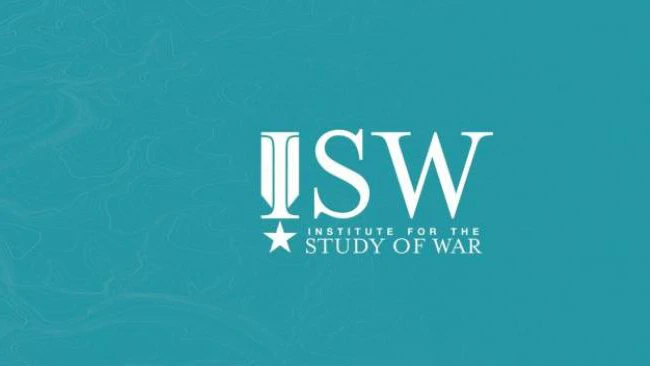Summary of the ISW: RUSSIAN OFFENSIVE CAMPAIGN ASSESSMENT REPORT. NOVEMBER 4, 2023

Assessing the nature of the war in Ukraine
A brief overview of the Institute for the Study of War (ISW) report NOVEMBER 4, 2023
Zelensky's Rebuttal of a "Stalemate"
President Volodymyr Zelensky firmly rejects the notion that the war in Ukraine has reached a stalemate. Contrary to some perspectives from 2022, Ukraine's successful liberation of territories like Kharkiv Oblast and west bank Kherson Oblast demonstrate the fluidity of the conflict. Zelensky underscores the need for advanced military assets, particularly US F-16 fighter aircraft and air defenses, to maintain and extend their operational advantage over Russian forces. The assertion that President Putin will not remain content with current territorial occupations reinforces Ukraine's resolve not to concede.
General Zaluzhnyi's Insight on Modern Warfare
In his essay "Modern Positional Warfare and How to Win It," General Valerii Zaluzhnyi delves into the technicalities of modern warfare's positional stage. He argues for a comprehensive strategy that includes gaining air superiority, breaching minefields, enhancing counter-battery effectiveness, cultivating reserves, and augmenting electronic warfare capabilities. Zaluzhnyi's analysis reveals the nuances of achieving tactical parity and exploiting the opponent's challenges to transition from a trench-like scenario to a maneuver-centric approach.
Diplomatic Dynamics and Peace Talks
Reports from sources like NBC suggest discussions among US and European officials about peace negotiations with Ukraine, which President Zelensky denies. The absence of any indication from the Kremlin or President Putin regarding a willingness to negotiate accentuates a persistent belief in achieving military objectives without the need for diplomatic engagements.
Syrian Weapons Claims and Wagner Group
The Russian Ministry of Defense (MoD) purportedly manipulated claims regarding Syrian agreements to arm Hezbollah as a pretext to subsume Wagner Group remnants in Syria and appropriate their air defense systems. This strategic move likely aims to consolidate control over Wagner's operations and neutralize potential internal threats.
Military Operations and Strikes
A series of missile and drone strikes by Russian forces on Ukrainian targets continues unabated, with Ukraine's air defenses intercepting several threats. Concurrently, Ukrainian forces sustain offensive maneuvers near Bakhmut and western Zaporizhia Oblast, indicating ongoing efforts to reclaim and consolidate territories.
Russian Media and Government Dismissals
The dismissal of TASS General Director Sergei Mikhailov by the Russian government, as reported by the Moscow Times, points to the Kremlin's intolerance for narratives deviating from official lines, especially concerning sensitive topics like the Wagner Group rebellion.
Electronic Voting and Political Maneuvering
The Russian government's testing of an electronic voting system ahead of the 2024 presidential elections raises concerns about the potential for result manipulation. This move aligns with efforts to ensure President Putin's dominance in the upcoming elections.
Battlefield Updates
Russian forces persist in their offensive along various fronts, with mixed results. Ukrainian counterattacks and strategic targeting of Russian military assets in rear areas suggest a robust response to Russian advances.
Casualties and Mobilization
Confirmed reports indicate significant Russian casualties, with tens of thousands of servicemen lost since the conflict's inception. The Russian government's move to register prisoners for military service reveals a pressing need to supplement its fighting force.
Technological Challenges
Sanctions and domestic production issues hamper Russia's attempts to enhance its strategic nuclear capabilities, as evidenced by failed missile tests and delayed deliveries of advanced weapon systems.
Occupation and Integration Efforts
Russian efforts to settle its citizens in occupied Ukrainian territories and integrate them into its administrative and social systems are ongoing, often at the expense of the local Ukrainian population.
Russian Information Operations and Narratives
Russian sources used the celebration of Unity Day in Russia on November 4 to promote Kremlin narratives about interethnic and interreligious harmony in Russia and the Russian military as well as the false unity of occupied Ukraine with Russia. A Russian milblogger claimed that various ethnic minorities serving in the Russian military together, the presence of people from various regions of Russia in occupied Ukraine, and the patronage systems between Russian regions and occupied Ukrainian areas are all characteristic of the meaning of Unity Day. A Russian source claimed that Russian authorities canceled a religious procession in honor of Unity Day in Samara Oblast so as to not disrespect other religions and diasporas. Russian sources also highlighted the opening of the ”Rossiya” International Exhibition and Forum opened in Moscow on November 4, which included exhibits on occupied Donetsk, Luhansk, Kherson, and Zaporizhia oblasts. Antisemitic riots in Dagestan on October 29 and recent controversies surrounding Chechen and regular Russian forces highlighted interethnic and interreligious tensions in Russia.
Russian government officials continue to use escalatory nuclear rhetoric to scare the international community and impede Western military aid provisions to Ukraine. Russian Security Council Secretary Nikolai Patrushev claimed on November 4 that Russia has more nuclear missiles than its “competitors” for the first time in history. Patrushev claimed that Russia’s security will be guaranteed for “decades” due to its “unique strategic weapons,” such as hypersonic missiles. Russian Deputy Foreign Minister Alexander Grushko stated on November 4 that Russia will take “all necessary military-technical precautions” in response to the US transfer of F-35 nuclear-weapons capable fighter jets to the United Kingdom and NATO’s activities generally. ISW has consistently assessed that the Kremlin often references Russian nuclear capabilities in an attempt to dissuade the West from providing Ukraine with materiel.
Conclusion
The war in Ukraine defies simplistic characterizations such as a "stalemate." The complex interplay of military strategies, geopolitical negotiations, and domestic political maneuvers underscores the multifaceted nature of this conflict. With the situation evolving, the international community remains vigilant, and Ukraine continues to seek support to strengthen its defense and reclaim sovereignty over its territories.
To leave a comment, please log in.